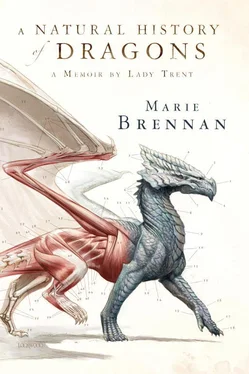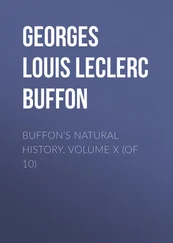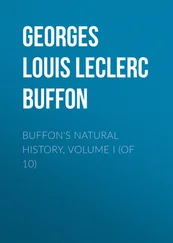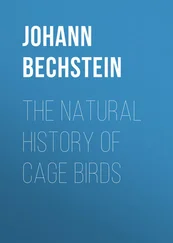“Why? I mean—that is—” I blushed a vivid red and struggled to form a coherent sentence. “I apologize, Mr. Camherst—”
“Please, call me Jacob.”
“—I don’t mean to be rude, and I am, dreadfully. It’s just that—” I managed, somehow, to meet his hazel eyes. “All of this has been so strange, the process of finding a husband, and now that the moment’s come, I can’t help but wonder why . Why do you wish to marry me? Why me, and not some other? Which is not to say that I think you should look for some other—” I quelled myself, shook my head, and said lamely, “I will stop there, before I embarrass myself any worse than I already have.”
Belatedly, it occurred to me to pray Mama was not listening at the keyhole with the maids.
Mr. Camherst was, understandably, taken aback by my words. “Miss Hendemore—”
“Please, call me Isabella.”
“I cannot think how to answer that question without being a little blunt. Given how we’ve begun, though, perhaps it’s only appropriate.”
He paused there, and I tried not to squirm.
“You’ve read Sir Richard Edgeworth’s A Natural History of Dragons, haven’t you?”
“Heaven preserve me,” I said, quite involuntarily. “Mama will have fits if I answer that question.”
I succeeded in provoking a fleeting laugh, though it hadn’t been my goal. “Miss Hendemore—Isabella—you are not the first young lady to set her cap for me. But I do believe you are the first one to do so, not because of my wealth, but because of my hobby. Unless I’m very much mistaken, you came to Falchester not in search of a husband, but in search of someone with an interest in natural history, and that was the primary quality that recommended me to you.”
If Mama was eavesdropping, she would never let me hear the end of this… but at that precise moment, I could not imagine lying to the man who might become my husband, even if the frank truth might cause him to cry off.
I took a deep breath and unclenched my hands from each other, my fingers cramping at the release. “Mr. Camherst—Jacob—” The name felt strange on my tongue, and intimate. Had it been the same for him? “Natural history has been a passion of mine since I was a small child. It is not a ladylike passion, I fear, and there are few husbands in the world who would tolerate it in their wives. I do not know if you would be one such. But I know, at least, that you would keep a library on the subject, and I hoped that I might be allowed to read from it.”
He regarded me with a bemused expression. “You want me for my library. ”
Put so baldly, it sounded ridiculous. “Oh dear—I don’t mean to insult you—”
This time his laugh was more full-bodied. “It’s the strangest insult I’ve ever suffered, if indeed I would give it that name. So Edgeworth, then—”
“I was eleven,” I admitted. “The first time. I’ve read it dozens of times since.”
“I see,” he said. “I didn’t hear quite everything you said to Swargin, but I thought I recognized the name. And you did identify the swamp-wyrm; of that I was sure.”
“Those dragons,” I said wretchedly. “I was sure I had made a mull of my entire future, gabbling away like that in public.”
He smiled, and the sight caused my heart to flutter a little, most ludicrously. “Not a mull of it—not then, anyway. But there was that other time…”
My heart changed from fluttering to lurching. “Other time?” I racked my memory for other occasions on which I had disgraced myself. There were so many!
“Yes, that time just a moment ago, when I asked you to marry me.” His smile widened. “You still haven’t given me an answer.”
So I hadn’t, and after I got over my moment of horrified self-castigation, I swallowed and returned his smile. Miraculously, my voice worked on the first try. “Yes,” I said. “If you haven’t run off by now, you’re quite possibly the only man in Scirland who would have me. How could I do anything but agree?”
Prey down, the horns sounded in my head. And this time, I was decidedly the victor.
My wedding, and a gift — Married life — The Great Sparkling Inquiry — Miss Natalie Oscott and her grandfather — Plans for an expedition to Vystrana
Papa gave his consent to my wedding, and I saw true joy in his eye when I returned home after the Season’s end. I teared up unexpectedly, and could not muster the words to thank him for pointing me at such a chance for happiness, but I believe he understood.
The wedding took place that autumn, just after my seventeenth birthday. It was a lavish affair; with only the one daughter, my parents could afford to dower me well and send me off in grand style. We had several truly august personages in attendence, too, thanks to the connections of the Camherst family, which were somewhat better than my own.
My clearest recollections of the day ought to be of my husband, and many of them are, but the one I wish to share concerns my father instead. A bride has few if any quiet moments to herself during the course of her wedding day, but that evening, Papa drew me aside and presented me with a small wrapped package. “We have other gifts for you and your husband as a couple,” he said, “but this one, my dear Isabella, is for you.”
I suspected what it was even before I removed the paper; my fingers knew the shape inside so well. I did not begin crying, though, until I actually saw the cover of Sir Richard Edgeworth’s A Natural History of Dragons.
“I purchased that book for you,” Papa said, “despite knowing it might result in trouble. As it has led you to happiness, I believe you should have it.”
With a fine disregard for the damage my tears were doing to my cosmetics, and also the possibility of leaving stains on him, I threw my arms about my father and hugged him for dear life.
As absurd as it may sound, I think that was the moment at which I realized I was truly leaving. This is something the gentleman readers of this memoir may not understand, but the ladies will know it all too well. If they are married, they have been through it already, and if not, I am sure they have devoted some thought to the matter. To marry means to leave one home for another, and often one place for another. My own experience was not so disconcerting as that of royal brides who depart for another country, but from my family’s estate in Tamshire, on which I had spent virtually all of my young life, I now left behind everything I knew and removed to Jacob’s house outside of Falchester.
Jacob. I have made a deliberate choice, in the writing of this, to refer to him as Mr. Camherst until now, for that was how I thought of him at the time, and for some while after. Weeks, perhaps months, passed before it felt natural to call him by his given name. We spent a fair amount of time together during our courtship and engagement, but even so, moving into his household as his wife felt distressingly intimate, and no amount of telling myself that such intimacy was now quite expected made it less strange. Only time could do that—time in which he would cease to be a half stranger to me, and become, not only my husband, but a kind of friend, as I had once hoped.
For his own part, I think Jacob had to adjust to me as well. He did not live a rowdy bachelor’s life, but he had been a bachelor, and was unused to having a woman ordering certain parts of his existence. Nor, I think, did he quite know what to do with me. He offered for me that afternoon in Westbury Square because he liked the notion of a wife with whom he could converse about more than the guest list for a dinner party—but what to do with her once she was installed in his house?
Читать дальше












